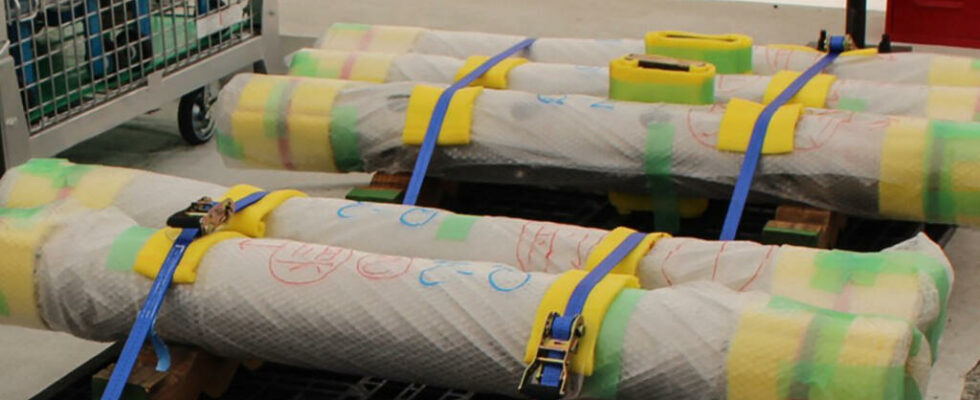The Japanese operator of the Fukushima plant, Tepco, is making a new attempt on Tuesday, September 10, to remove a sample of highly radioactive debris from the plant’s reactors. The debris is still trapped inside, partly destroyed by the tsunami of March 11, 2011. The maneuver was interrupted on August 22 after a technical problem concerning the installation of the necessary equipment.
2 min
A remote-controlled probe, operated by a 20-metre-long robotic arm, is to be sent inside one of the three reactors at the Fukushima nuclear power plant. Their cores melted, melting the cooling systems, when giant waves swept through the plant in March 2011. The maneuver was originally scheduled to begin on August 22, but was postponed. suspended after a technical problem.
The probe should take a week to reach the bottom of reactor number two and recover three grams of debris. These are so radioactive that robots had to be designed to withstand them, collect the debris and come out four weeks later, our correspondent in Tokyo explains, Frederic Charles.
Debris for analysis
A tiny amount of debris recovered from the 880 tons present in the plant. The plant’s engineers want to obtain precise indications on the state of the interior of the reactors. The removal of debris is considered the most delicate and dangerous operation of the dismantling of the plant. This operation should last about thirty years.
Tepco had sent two mini-drones and a mini-robot, shaped like a snake, into one of the three badly damaged reactors in late February. But the operation was interrupted for technical reasons, once again. Three of Fukushima’s six reactors were operating when the tsunami struck the plant on March 11, 2011, melting the cooling systems and causing the worst nuclear disaster since Chernobyl.
Power plant water discharged into the Pacific
Japan has released into the Pacific Ocean at the end of August 2023 water stored at the plant site. China, in particular, has strongly criticized this operation, although the process has been validated by the International Atomic Energy Agency (IAEA). Beijing responded by suspending all imports of Japanese seafood products since the summer of 2023, a measure imitated by Russia a few months later. Both countries have raised concerns about contamination risks.
In addition, Tepco launched a campaign on Saturday to promote products from the Fukushima region by offering peaches, known for their juicy and sweet flavor, for sale in the prestigious Harrods department store in London.
Also readXi Jinping to Fumio Kishida: Fukushima water discharge is “a source of concern for all humanity”
